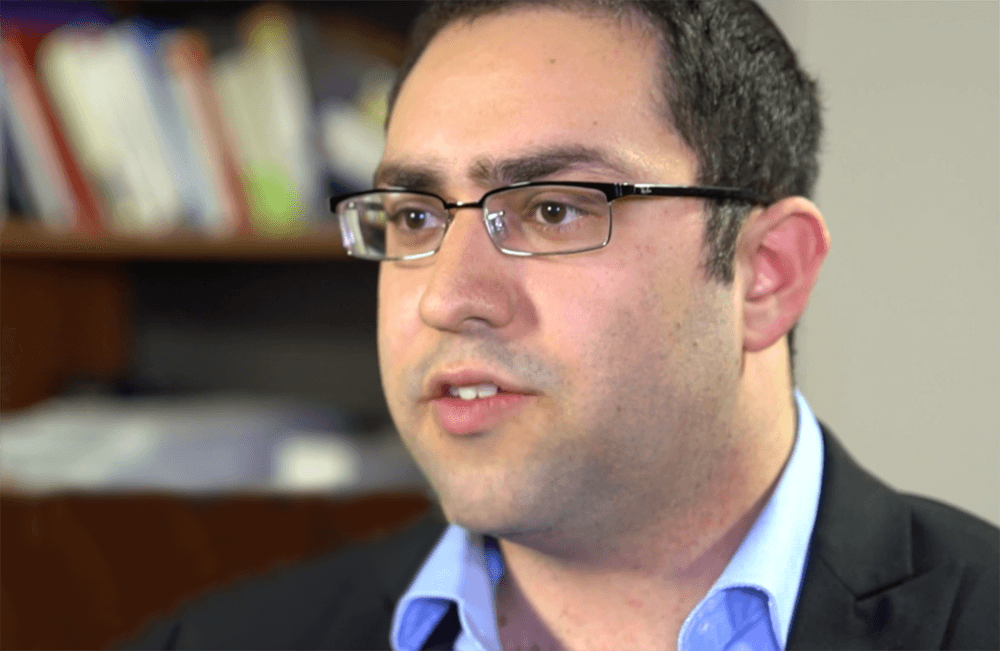A Day in the Life of an Industrial-Organizational (I-O) Psychologist
Touro Alum Sam Merzel Describes the Many Benefits of a Career in I-O Psychology and How the Pandemic Affected the Field

Sam Merzel, I-O Graduate Program 2016 alum, shares his professional journey from Touro to the Metropolitan Transportation Authority (MTA), why the pandemic expanded opportunities in the field, and how students interested in I-O psychology can prepare for an exciting career.
Can you describe the field of organizational psychology or industrial-organizational psychology?
Industrial-organizational psychology, or I-O psych, is the discipline that looks to solve various aspects of the workforce and workplace, such as candidate selection, motivation of employees, and training and development through the lens of data, measurable outcomes and the scientific method. It ultimately grapples with researching and implementing ways to enhance both employers' and employees’ work-life.
How did you become interested in I-O? Why did you choose it as your career path?
I was a psychology major in college. I was always fascinated with the human mind and understanding what made people “tick”. While I knew I was interested in psychology, I had an understanding that clinical psychology just wasn’t for me, and that it didn’t line up with my skill sets or passions. I was exposed to I-O psych early in my Introduction to Psychology course in college and I was immediately enamored.
I think what drew me most to the field is the fusion of interpersonal interactions and exposure with real data-driven research. It allows me to work in environments where I get to talk to multitudes of different people within different areas of my organization, everyone from custodial workers to chief officers and I’m not locked in front of a computer screen all day, while also allowing me to be directly involved in some of the more analytical work that I enjoy doing as well.
How did you enter the field and how did you land your position at the MTA?
I was actually still in graduate school when I began working at the MTA. Touro’s flexible schedule and night classes, coupled with the fact that my office was only a 15-minute subway ride from campus, allowed me to work full time while maintaining my regular school schedule. At the time, Touro sent out a job posting for an entry-level position in my current unit. I applied, took a few job-related assessments and interviewed. The rest is history.
You’ve moved up from an analyst to manager at the MTA. What does it take to get promoted in this field?
Every company is different, and every job is different. For me, I like to believe it was a number of things, including genuine interest in the work; producing quality work; and maintaining good relationships with the people I work with.
What is a day in your life like as a manager in the Assessment and Selection Unit at the MTA?
One of the things that I love about my job is that no single day is the same. Some days I will be reviewing the work of my staff, other days I may be focused on drafting a few important emails and on another, I focus my attention on developing new training materials or focusing on improving efficiencies in a process.
What do you find most rewarding about I-O?
The thing that I find most rewarding and one of my primary motivations for entering the field, is having the ability to reshape the workplace and the workforce. People spend the majority of their waking hours at work. If I can do something to make that block of time a little better for people, that’s something that I can wake up every day thinking that I’m doing something meaningful.
Why did you choose Touro for your graduate studies in I-O? How did this program prepare you for your career?
I chose Touro specifically for its location and reputation of its graduate schools. I personally felt that my education there prepared me tremendously for my current role and career as a whole. I learned valuable skills, not only in my I-O psych knowledge, but it helped me hone in on skills as they relate to public speaking and working with and as part of a team.
In the wake of the pandemic, do you think I-O is a growing field? Are there opportunities? Please explain.
I think organizations are going to be grappling with new phenomena that now exist within the workforce, that may not have existed as prevalently just a few years ago. Whether it be safety policies or managing an influx of employees who are now working from home, I-O psychologists will 100% be at the forefront trying to help organizations prepare for these challenges and looking to identify best solutions.
What advice do you have for students interested in entering the field?
First, try to learn statistics as best you can. It will be a skill and knowledge area that can propel you into almost any sub-discipline within I-O psych. Secondly, try to get any I-O psych or human resources experience you can as early as you can, even if it is not directly related to the specific area within I-O psych you may want to pursue long term.
Lastly, though it’s far from a requirement, if you have the head for it, learn a coding language or two such as SQL, R or Python. It is a highly desired skill that not many I-O psych practitioners have and will make you extremely marketable.

